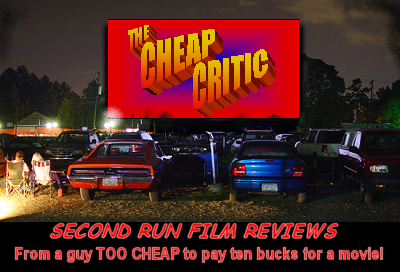
Last night I saw the film Metropolis at our local boutique cinema -- the Galaxy in Cary -- and enjoyed it thoroughly. Here's a trailer for the version I saw which contains newly found footage that restores the film to within a minute or two of the original version screened in its 1927 German premier:
Fritz Lang's Metropolis was the first science-fiction mega-epic and, even in today's post-Star Wars culture of high expectations it remains visually stunning. It has always been a favorite of mine but, that said, there have always been a few obstacles to full enjoyment that I had to work around. Possibly the biggest problem is that the central theme of the film -- "the heart must be the mediator between the head and the hand" -- is a childish and annoying take on the conflict between capitalists and labor in an industrialized society. The screenplay was written by Lang's then-wife Thea von Harbou, and Lang left the ideological content pretty much entirely up to her, focusing his spectacular talents on on the plot, the visual storytelling and the symbolic content. The result is a gigantic, brilliant film -- filled with some of the most striking visual metaphors for the dehumanizing potential of the industrial workplace ever filmed -- that leads up to a trite, maudlin ending that makes one squirm.
And what's worse, if you put the film in its historical context it's hard not to notice how neatly von Harbou's thesis fits as a seque to her later enthusiasm for National Socialist economic theory. Lang and von Harbou split up over her Nazi enthusiasms which he very much did not share, and Lang fled to the US where he spent most of the rest of his life disliking his film for its idiotic theme. It was only near the end of his life that he was able to get over his distaste for the thematic content and see past it to the achievement that the rest of the film represents. I mention this in my review so that readers who may be seeing the film for the first time can begin the process of getting over the idiotic theme ahead of time and not let it spoil their enjoyment of one of the greatest science fiction films ever made.
The other problem that I have struggled with in viewing Metropolis is that it is a long, silent film and, while it is wonderful, it has always also been a bit wearying, especially since it seemed disjointed and the plot was hard to follow. I must admit to a bit of a worry about the new "restored" version. In the back of my mind was the thought that, while it was exciting that they had found another half hour of footage in a print from Buenos Aires, I hoped I would be able to stay awake to see it since the old version always seemed more than long enough.
I am pleased to report that the restored version of the film, while it still seems longish, is much more engaging and the length is felt as epic sweep rather than as an artistic endurance contest. The restored footage gives the film a plot one can follow and it is easier to get through the new, longer version than the shorter but disjointed versions. One is swept along through the film and deposited at the (stupid) ending in a very enjoyable rush. It is a huge improvement.
Also wonderful is the accompanying music which is a modern orchestral recording of a restored version of the original score. Silent movies were never intended to be watched in silence and the music track is a very important part of the experience. The orchestral version of the original score is wonderful and represents a good, strong second-best way to see the film.
The best way to see Metropolis is to find a performance of the film accompanied by the Alloy Orchestra, described on their website as
"a three man musical ensemble, writing and performing live accompaniment to classic silent films. Working with an outrageous assemblage of peculiar objects, they thrash and grind soulful music from unlikely sources.
Performing at prestigious film festivals and cultural centers in the US and abroad (The Telluride Film Festival, The Louvre, Lincoln Center, The Academy of Motion Pictures, the National Gallery of Art and others), Alloy has helped revive some of the great masterpieces of the silent era."
I've seen them preform Metropolis with an older print and it was astounding -- easily the best possible way to see the film -- and they have rewritten their 1991 score to fit the new, longer version, After an April premier performance at the TCM Classic Movies Festival in Los Angeles they are now touring with the new, restored print. Sadly, none of the performances on their schedule for the rest of 2010 are in the southeast -- and with both of my kids getting married in the next four months my travel budget is limited -- but I plan to keep an eye on their schedule and catch a performance at my next opportunity.
Check out the Alloy Orchestra's upcoming performances. If there's one you can get to, do that. If they are out of reach, plan to catch the new, restored version of Metropolis at your local cinema. It's worth the trip either way.
Oh, and thanks to Julie of the Triangle Geeks Meetup group, for organizing the outing and bringing my attention to the showing which might otherwise have slipped by unnoticed.

1 comment:
Stunning visuals and a trite plot? Some things never change.
Tom Verlaine and Jimmy Rip have done some tours playing live music to accompany old "experimental" silent films from the 1920's. I have the DVD (cause I'm a big Tom Verlaine fan) and it is pretty strange -- Man Ray with electric guitars.
Post a Comment